You have no items in your shopping cart.
Champagne
Champagne Louis Roederer
(37 customer reviews)
Louis Roederer Champagne was founded in Reims in 1776. Exceptionally, it is still owned by the direct heirs of its founder. The brand is also distinguished by its large production, most of which comes from its own vineyards. Each year, 4.5 million bottles of Roederer champagne are sold worldwide. Find out more
 Recommended by
Recommended byParker Wine Advocate - Bettane et Desseauve avant 2020 - Jancis Robinson
-

Shipped in
secured packaging -

Garantie anti-casse :
Prise en charge totale
The winemaker
The Roederer champagne house, a family history
The champagne house was born in 1833, founded by Louis Roederer, who inherited his uncle's maison de champagne, Maison Dubois Père & Fils in Reims, itself founded in 1776. From the outset, Louis set himself apart from other houses by deciding to buy parcels of vines to extend his vineyard and thus have complete control over the quality of the grapes and the consistency of supplies.
Louis Roederer was a visionary, and he wanted to be able to control every stage of wine-making to stamp his mark and impose his taste. He only chooses exceptional lands where he can grow grand crus de champagne.
In 1872, Louis II took over the reins of the house, driven by the same passion his father had passed on to him. Louis I had convinced him that a great wine finds its strength in the land, and he continued to expand the estate, without ever sacrificing quality. Champagne was exported and delighted the world's great and good, such as Alexander II, then Czar of Russia. For this sovereign, Louis II Roederer created the house's first prestige cuvée in 1876, which he named Cristal. The name perfectly illustrates the majesty and subtlety of this exceptional wine. Russia becomes the brand's first export destination.
In 1880, Léonie Olry-Roederer took over from her brother. By 1908, Roederer champagne was as popular as ever in Russia. Its new Tsar, Nicholas II, awarded it the title of "Official Supplier to the Court of His Majesty the Emperor". This is why Cristal bottles now bear the Tsar's coat of arms in a medallion.
Léon Olry Roederer took over from his mother and worked to create ever-better wines. By dint of blending, he developed what was to become the house's future Brut Premier. His wife, Camille, took up the torch on his death in 1933. She maintains the production and design of champagne of the highest quality, but also works hard on communication and patronage, linking the Roederer house to all festivities. Not a major event was held in those days without Bottles of Roederer champagne gracing the tables.
The house then passes through the hands of Camille's grandson, Jean-Claude Rouzaud. This agricultural engineer is also a œnologist and is involved in the development of the family vineyard. Today, it's his son, Frédéric Rouzaud, who, although he doesn't bear the Roederer name, is a worthy representative of the family, of which he is the seventh generation.
The vast Roederer champagne vineyards
The Roederer vineyard totals over 240 hectares (representing 410 parcels) which are exclusively located in the Premiers et Grands Crus de la Marne. This gives an idea of the work accomplished if we consider the first 15 hectares acquired by Louis I Roederer in 1845, in the Verzenay Grand Cru. Roederer champagne could thus be produced solely from his own vines.
The vineyard is anchored in the heart of the three main terroirs of the Champagne region, namely the Marne Valley, the Montagne de Reims and the Côte des Blancs. The terroir is divided into three grape varieties: the pinot noir indispensable for the structure of blends, thanks to its solid constitution and remarkable capacity for ageing; the pinot meunier whose sweetness helps create delicious harmony; and the chardonnay whose elegance and finesse are legendary and without which champagne could not find its touch of minerality.
The Maison Roederer harvests its grapes using traditional methods
.Just as it has preserved the family spirit, Maison Roederer perpetuates tradition and works with respect for nature. The grapes are systematically harvested by hand with the utmost care. The bunches are then pressed at the very place of harvest. Particular attention is paid to the pressing, so as never to tint the juice with the color of the grapes, in order to preserve its clarity and blondness. 140 hectares of the vines are cultivated using organic farming methods. Domaine Roederer is the largest estate cultivated using biodynamic farming methods in Champagne, with 100 hectares complying with the standards.
The choice of grapes is subject to drastic selection. Each parcel is precisely identified so that the finesse of the assemblages can be worked out. Balance is always respected between grape varieties, in order to perpetuate the tradition of an exceptional Champagne, strongly imbued with the long tradition of the Roederer family. Every day, tasters bustle around the vats. They taste, discuss, classify and note... Families of flavors, temperaments and aromas are catalogued, and everything is recorded to track their evolution and arrive at the best of the best.
Roederer champagnes
Non-vintage champagnes include Brut Premier, made from 40% pinot noir, 40% chardonnay and 20% meunier. It draws its complexity and roundness from the integration of 20% reserve wines. After three years' bottle age on lees, it requires a further six months' rest to give its best.
The champagne Carte Blanche takes up the same proportions, but with an extra touch of sugar.
Then you have the choice of vintage wines. The Vintage and Vintage Rosé are made with 70% pinot noir and 30% chardonnay. Blanc de Blancs Vintage contains only chardonnay, and finally Brut Nature, an unblended cuvée.
For prestige cuvées, you can choose between the historic Cristal and its alter ego, the Cristal Rosé.

21 wines available
between 54.95 € and 1252.5 €
between 54.95 € and 1252.5 €

364 wine's scans
on Twil application
on Twil application

Best rated wines on Twil :
You might like Voir tous les vins de la région
- -26%
- -27%
- -26%

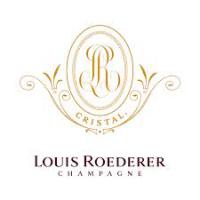
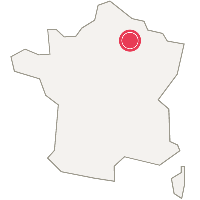
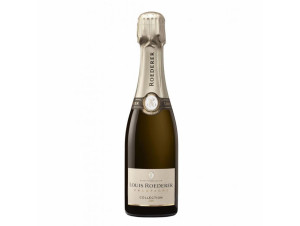





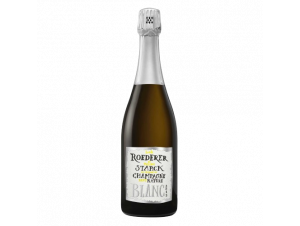



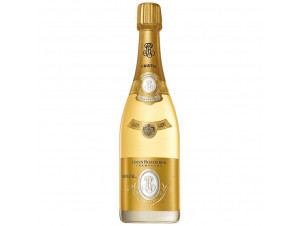
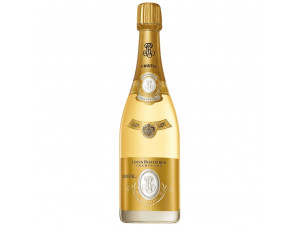
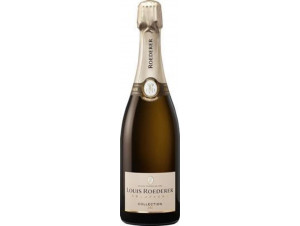
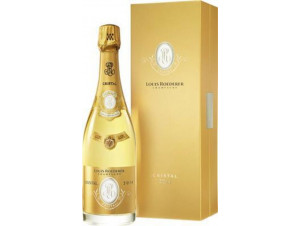


















 TWIL - Achat de Vin
TWIL - Achat de Vin


